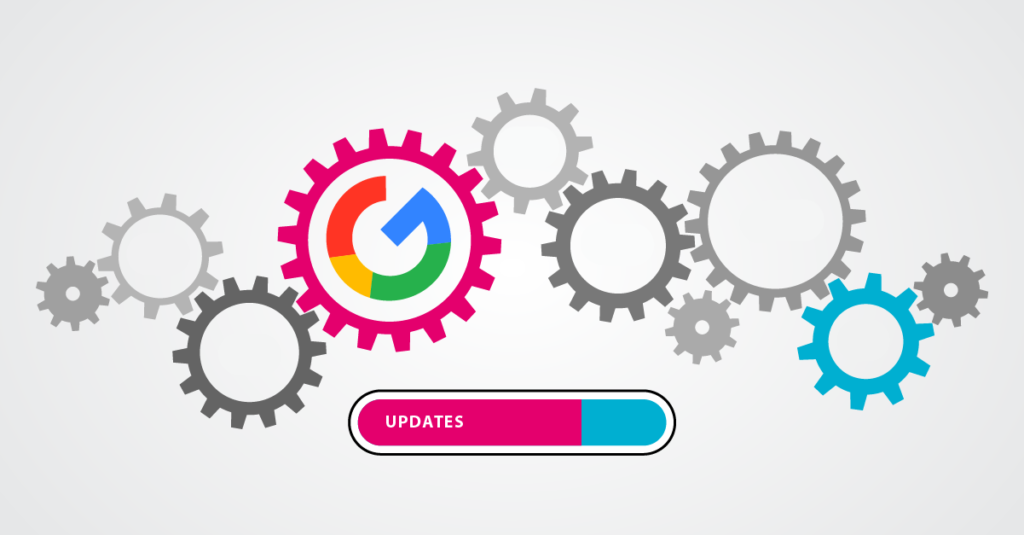Google’s New Ranking Algorithm: What to Expect in 2021
Page Experience
In Google’s own words, here is what it means…
The page experience signal measures aspects of how users perceive the experience of interacting with a web page. Optimizing for these factors makes the web more delightful for users across all web browsers and surfaces, and helps sites evolve towards user expectations on mobile. We believe this will contribute to business success on the web as users grow more engaged and can transact with less friction.
In other words, they are looking for how usable your website is.
Here’s an example of what they don’t want…
As you can see from the graphic above, the user was trying to click on “No, go back”, but because an install bar popup up at the top, it pushed the whole page down and caused the user to accidentally click on “Yes, place my order.”
The purpose of this update is to make sure that sites that rank at the top aren’t creating experiences that users hate.
The simplest way to think about this update is that user-friendly sites will rank higher than sites that aren’t user friendly.
But this change is the start of a big shift in SEO.
Why is this update so important?
What sites do you think that Google wants to rank at the top?
Take a guess…
Maybe sites with the best backlinks?
Or sites with the buttoned up on page code?
It’s actually none of those.
Google wants to rank the sites at the top that users love the most.
Here’s what I mean…
When you want to buy athletic shoes, what brand comes to mind?
If I had to guess, I bet you’ll say Nike.
And if you were to get a credit card… I bet Visa, American Express, or Mastercard will come to mind.
This is why brand queries (the number of users who search for your brand name on Google and click on your website) impact rankings, which I’ve broken down as one of the most important SEO lessons I learned.

Google organic search is the foremost vital tool for any website. Google easily tells how optimized your site is. Many tools check every aspect of your website and then give valuable insights. Google continuously changes its search ranking benchmarks. So if you’d like your site to urge on the first page of Google search, then you’ve to understand and update yourself monthly. This summer, the Google team announced that they’re getting to update the ranking algorithm.
The user-friendly website has always been an excellent tactic to have a better ranking in Google Search. But now, Google is Officially updating its algorithms for a better ‘Page Experience’. So now, User Experience will matter most in the ranking.“Page experience” is all about how users perceive the experience of interacting with a web page.
An online site with poor user experience could lead to consumers not finding what they need.

Now the question is how to prepare your business website for this new change? Here’s how:
- Update your Web design
Analyze your website, remove extra options, select readable fonts, and use better colors. These might sound like small things. But, it makes a significant difference. These are small things that engage the user. While you’d possibly be thinking, “My website seems perfectly fine where I can find everything I need”, you’d wish to place yourself within the shoes of your visitors. Users with certain hearing, vision, or intellectual disabilities will interact in conjunction with your content differently.

- Mobile-Friendly Website
A mobile-friendly website is the need of the hour. Google’s new update is all about user-friendly websites. So, if your website isn’t mobile-friendly, then don’t think that Google will rank you higher. People everywhere use mobile devices to undertake to do everything from simple internet searches to buying big-ticket items and far more. The reason? it’s fast and easy. Consumers in every industry want to attach and acquire what they’re trying to hunt out quickly.
- Speedup Your Webpage
Websites with an extended load time tend to possess higher bounce rates and lower average time on page. Both of those metrics are directly related to user experience, showing that the visitor didn’t enjoy his/her stay on your website so that they only left (bounce). Longer load times also can negatively affect conversions as a result of the user’s dissatisfaction.
- Delete Unfriendly Elements
Some things, like JavaScript and CSS images, don’t load well on mobile. You need to delete that content from your website and instead replace them with simple images and blocks of text. You’ll also want to believe in using responsive design and selecting a legible font size without zooming in. These elements are not just important for user experience, they’ll also affect how you rank on Google.
Conclusion
The first step is to determine where you stand immediately. Devour your phone and attend your business’s website. Does it take an extended time to load? Are there elements that don’t load? Are things overlapping? Is that sort too small to read?
Analyse it and get yourself ready to adapt with Google’s new ranking algorithm in 2021. All the best!!















0 Comments